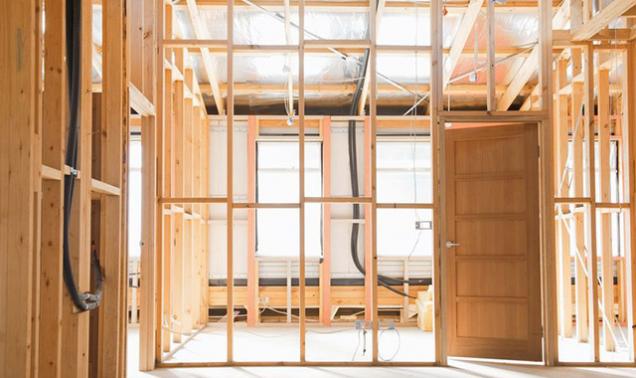
Home Renovation Tips From A New Young Property Developer
With Emily Reid
Do popular shows like ‘The Block’ and ‘House Rules’ make you want to throw yourself into your own home renovation? Well, we’re sorry to burst your bubble, but it’s time for a reality check.
What you don’t see is the 15 tradesmen behind the scenes skulling energy drinks around the clock to get the job done. The lines of credit don’t quite account for all the materials required for the project. And these well-orchestrated ‘reality’ tv shows have a whole crew of professionals managing the budget and timeframes, and the right sponsorship contacts for big discounts in return for prime time advertising.
The long and the short of it? Renovating a home or investment property can be challenging and costly if you have no background in building or construction. But this isn’t to say it’s not an effective investment strategy. When you know what you’re doing, a home or property renovation can boost your bottom line.
New young property developer Emily Reid recently completed a successful home renovation. And she did it on a tight budget. We caught up with Emily to find out how she modernized her PPR (principle place of residence) and raised the value of her property without blowing the budget (or tearing her hair out in the process).
Thinking of renovating? Read on for some great tips from a New Young Property Developer…
Emily, when first costing your home renovation, how did you collect prices for each individual component of the project?
I decided from the outset to secure 4 quotes on the building and structural work. I’m glad I did because the difference in quotes was staggering. I received 2 quotes at $39,000, another at $65,000 and the highest was $75,000!
All the property managers I spoke to were given the same pre-written ‘scope’ of work as they looked around. It was clear who knew what they were doing and who didn’t by the suggestions they made (or didn’t!) as we talked through the process.
The best thing I took away was a huge collection of ideas and advice on how to make my renovation as inexpensive as possible.
So how did you choose the ‘right’ contractor for the job?
I chose a builder who recently completed my outdoor pergola refurbishment. He came in as one of the less expensive quotes and I liked his values. He really cares about what he does, and it showed in his suggestions.
I did realise this would mean the project would take longer to complete, but this renovation was my PPR and I wouldn’t have any additional holding costs for interest. Most importantly, I wanted a high quality job for less.
What should a property renovator look for on the building contract and price?
A fixed price contract is the way to go. Your contractor provides a price for the entire renovation, and will stick to it regardless of the final result.
However, be aware of unforeseeable items that often pop up along the way. If you decide to make changes while your renovation is underway, this ‘variance’ will be an additional cost outside of your initial contract. Your contractor may wish to charge you a higher hourly rate, so discuss this possibility early in the process.
How do you know when the building contract is ready to sign?
It’s critical the building contract is clear, and you both agree on the work to be completed and the quality. Leaving quality to individual interpretation can be a huge mistake as everyone has a different perception of quality.
I would also suggest a contingency plan for the unexpected. During my recent renovation, a plumbing issue uncovered during the project cost me thousands of dollars. The original flooring under my tiles also needed replacing before the new tiles could be laid which was another unpredicted cost. Having a buffer put aside ‘just in case’ will alleviate stress when these instances pop up.
Did you employ friends or associates or was it all left up to the builder?
Managing the entire project can be a timely exercise. If you don’t have time to project manage but have some mates in the industry, I encourage you to use them.
If you can, hire the tradespeople who do not have involvement in the structural aspect of the renovation. I hired the electrician, floor sander/polisher and painter. If the builder hired them, he would charge a percentage on top of the tradie’s fee, so this was another area where I saved money.
Did you complete any aspect of the renovation yourself?
When you’re working to a budget, every penny saved is a penny in your pocket! The painter painted the architraves, skirting and doors and I painted the walls and ceiling. I got the professional look I was after and it cost a lot less.
Well done, Emily!
Renovating can be exciting, stressful, rewarding and challenging, and a huge learning curve for all new property renovators throwing themselves into the world of building and construction.
Key takeaways from Emily’s home renovation experience?
- Take the time to collect a range of quotes
- Engage a professional to check your scope of works
- Complete some aspects yourself to save money
- Expect the unexpected!
A smart renovation will add significant value to your property, above and beyond the cost. Do your homework, stick to your budget and when in doubt, seek the assistance of an expert.
And check out the results….


